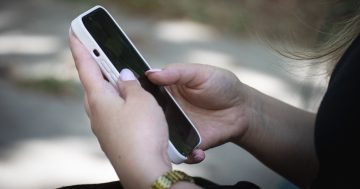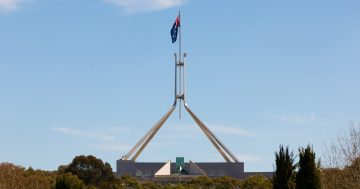
Age verification will be a big part of proposed laws to ban under 16s from using social media, but just how that will work is anyone’s guess. Photo: File.
In its attempt to shed light on how age verification will work with its proposed social media ban for under 16s, the Federal Government is exposing how little prepared it actually is to introduce the new regime.
The Federal Opposition wants legislation to ban children and young teenagers from using social media introduced and passed by Christmas.
It is expected the government will introduce its bill next week – one of two parliamentary sitting weeks left this year. But it still wants an implementation date for late next year.
Asked on Thursday (14 November) how age verification might work under the proposed laws, Communications Minister Michelle Rowland said the government didn’t want to mandate a specific technology to do the job.
She suggested age verification might be similar to what some online shopping sites applied.
“You’ll often get to a site where your bank will send you a one-off code that can be used, for example, as a sort of model for what we may call blind tokens or third party verification,” Ms Rowland said during a media interview.
“We want to set a specific set of criteria that needs to be satisfied to show the platforms have taken reasonable steps…
“This technology is developing rapidly… but we do have 12 months in that implementation timeframe to make sure we have the most robust systems.”
There will be exemptions for what the government is calling “low-risk platforms”, but the new laws could ban children from using X-Twitter, Instagram, TikTok, Facebook, Snapchat and YouTube, even if they have parental permission.
Ms Rowland appeared to back away from enforcing the ban on some platforms. She said YouTube Kids could be approved for use and suggested Snapchat in some form could possibly be excluded from the ban.
“We will go through, in a methodical way, having these criteria and the eSafety Commissioner applying what will be a very transparent process,” she said.
“Some of these platforms do present themselves in different ways. They will argue, for example, that they are messaging services and not social media services.
“We need to assess that objectively against a transparent set of criteria.”
Shadow Communications Minister David Coleman said Snapchat should definitely be included in the social media ban for under 16s.
“For many Australian families, Snapchat has had a devastating impact on their children,” he said.
“The idea of having social media age limits without those limits applying to Snapchat is outrageous.
“It is extraordinary that the minister is saying Snapchat could be exempted from the laws.”
Opposition Leader Peter Dutton said the laws should be in place as soon as possible.
“What we’ve said to the government is that we want the legislation in place by Christmas,” he said on Thursday. “I think there is every opportunity for us to work together…
“Social media has a big role to play in the lives of young Australians. What we’ve said, what we announced in June, was a desire to put the age at 16 before young Australians can access social media.
“The government’s sat on their hands for all of this year, in fact, all this term.”
He said there should be bipartisan support for the new laws.
“We welcome the government’s commitment to the announcement we’ve made, but we think it should be legislated by Christmas,” Mr Dutton said.
“No carveouts for the companies as the government’s now talking about. These social media companies couldn’t care less about Australian kids, so we have to and we have to make sure the online environment is a safe one for them.
“I hope the government can present a bill to the parliament next week so we can pass it by Christmas and give what I think would be a really good present to Australian families and to parents who want to say to their kids ‘you need to be operating safely online’.”
Announcing his plan to introduce the new laws, Prime Minister Anthony Albanese said social media was doing harm to Australia’s children and the government was helping parents troubled by the influence it was having.
“The onus will be on social media platforms to demonstrate they are taking reasonable steps to prevent access,” Mr Albanese said.
“The onus won’t be on parents or young people. There will be no penalties for users.”
The term “age assurance” is now being used in some inquiries, suggesting actual “verification” might be beyond the government’s ability to enforce.
Original Article published by Chris Johnson on Riotact.










